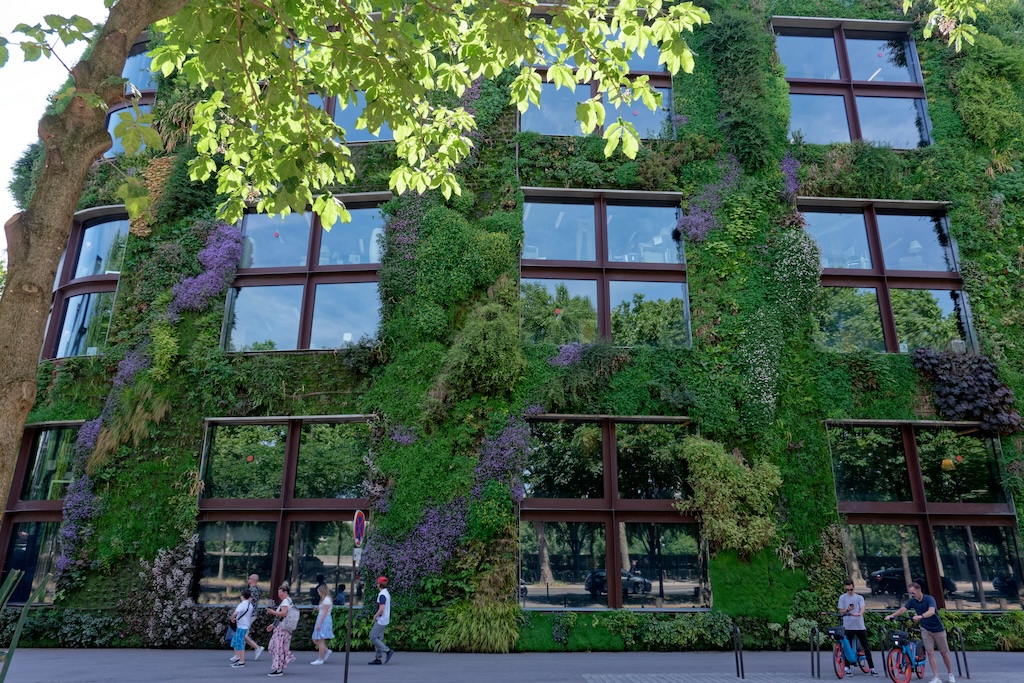Marju Prass on… Planetary Health and the People & Planet 2024 Conference
Urban Voices #37, March 2024

Marju Prass
Marju Prass is a specialist at Lahti University Campus, University of Helsinki, where she is involved in the 10-year planetary health initiative of Lahti region, Nature Step to Health. She is also a doctoral researcher at the Urban Ecosystems Research Group of University of Helsinki.
Can you tell us more about the background of the People and Planet Conference?
If European cities met the recommendations of the World Health Organization (WHO) for access to green spaces, 43,000 deaths could be prevented every year (Barboza et al. 2021). Cities importantly shape the well-being and health of people – more than half is determined by lifestyles and environments, including the presence of nature. With much of Europe aging, addressing lifestyle changes is key to sustainable and wellbeing-oriented futures. Importantly, health-promoting measures are often synergic with actions for tackling climate change and biodiversity loss. For example, diets are a major determinant for both our health and the health of the planet. Yet, attempting to change individuals’ diets or land-use policies in cities is notoriously challenging.
The People and Planet Conference held from 12 to 15 February 2024 in Lahti City, Finland, gathered 200 participants from various sectors, emphasising collaborative solutions to planetary health challenges. Sessions covered leadership and governance, nature and wellbeing, promoting active mobility, healthy and sustainable diets, and rethinking sustainable health. These topics are highlighted in the 10-year planetary health initiative of the Lahti region, Nature Step to Health, that relies on inter-organisational collaboration between Lahti’s municipality, wellbeing services and universities. Through this initiative, we aim to create a model for healthy and sustainable development of EU cities (see also Lyon-led URBACT One Health 4 Cities, GoGreenNext and other linked projects on the Nature Step to Health website).
Clear evidence exists on climate-health interactions, yet actions, policies, and funding remain inadequate. Transformative actions require understanding the complex dynamic between climate change, ecosystem degradation, economy, human behaviour and human health, as well as better funding for transdisciplinary projects. Policymakers need clear numerical evidence for informed decision-making.
Could you share your view on the relevance of sustainable urbanization for planetary health, the overarching theme of the conference?
Planetary health emphasises the interconnectedness of human health, environmental resilience, and the ecosystem services nature provides (Whitmee et al. 2015). It is close to several concepts such as ‘one health’ that traditionally highlight the connections between human and animal health. There is a growing need to recognise the interconnectedness of these systems, and issues that cannot be tackled alone.
Cities can uniquely enhance well-being and environmental sustainability. They host the great majority of Europe’s society, driving consumption, innovation, and social change. With active citizens, concentrated businesses, and agile governance, cities have a leading role in planetary health initiatives. Lahti’s 10-year initiative and Lyon’s one health declaration are exemplary. Collaborating with 7 other cities, we pursue transformative actions and pathways.
As exemplified by the Finnish Allergy Programme, transitioning from business-as-usual to prioritising protective factors and prevention can yield significant (economic) savings while enhancing human health. Over a decade, the costs of allergic diseases and asthma in Finland decreased by 30%, to about €1.5 – 1.8 billion in 2018 compared to 2007 (Haahtela et al. 2021).
This can in part be attributed to the implementation of the ‘biodiversity hypothesis’, that is, promoting exposure to diverse natural habitats and allergens to boost immune systems. Similarly, it has been estimated that the transition from a car-dominated city to Superblocks design in Barcelona prevented nearly 700 premature deaths annually, thanks to the resulting decrease in air pollution, noise, and heat, alongside an increase in green space and physical activity in the Superblocks (Mueller et al. 2020).
Moreover, embracing planetary health offers businesses a competitive edge, with opportunities like mobile health devices, urban environmental monitoring, open data initiatives, and sustainable food products. In this direction, consultancy firms are expanding services to include health impact assessments, and nature-based solutions are gaining further traction.
Embracing planetary health offers businesses a competitive edge, with opportunities like mobile health devices, urban environmental monitoring, open data initiatives, and sustainable food products. In this direction, consultancy firms are expanding services to include health impact assessments, and nature-based solutions that are gaining ever more traction.
What key messages would you share with urban policymakers to better integrate this crucial concept into their policies and programmes?
In addressing urban policymakers, it is crucial to emphasise key strategies for better integrating the concept of planetary health into policies and programmes, including:
- The need to emphasise the interconnectedness of human well-being and the environment, advocating for a shift in mindset through education
- The need to prioritise protective factors for health, integrating the cost of inaction into decision-making processes
- Identifying population-specific environmental concerns such as air pollution, lack of green spaces, and water pollution
- Fostering transdisciplinary participatory processes involving stakeholders from various sectors, employing system-thinking approaches like causal loop diagrams
- Conducting pilot tests to evaluate proposed solutions’ impacts on public health and finance, while considering public opinion.
- Utilising tools like the Healthy Cities Generator for urban planning
- Investing in peer-to-peer support and growing available technical and financial support to cities. Novel initiatives such as Nature Step to Health, GoGreenNext, and One Health 4 Cities are working on a compendium of concrete advice and recommendations for cities soon to be published.
More articles

Tilman Buchholz on… the German EU Presidency and the New Leipzig Charter...
Tilman Buchholz on… the ...
Tilman Buchholz on… the German EU Presidency and the New Leipzig Charter
Tilman Buchholz, from the German Federal Ministry of the Interior, shares with us the German EU Presidency's biggest achievement and adoption of the New Leipzig Charter.

Dr. Andrea Armstrong-Pulinx on… NBS for Extreme Heat Resilience...
Dr. Andrea Armstrong-Pulinx on...
Dr. Andrea Armstrong-Pulinx on… NBS for Extreme Heat Resilience
Dr. Armstrong-Pulinx discusses her research on advancing coordinated, just and effective extreme heat resilience for local authorities.
